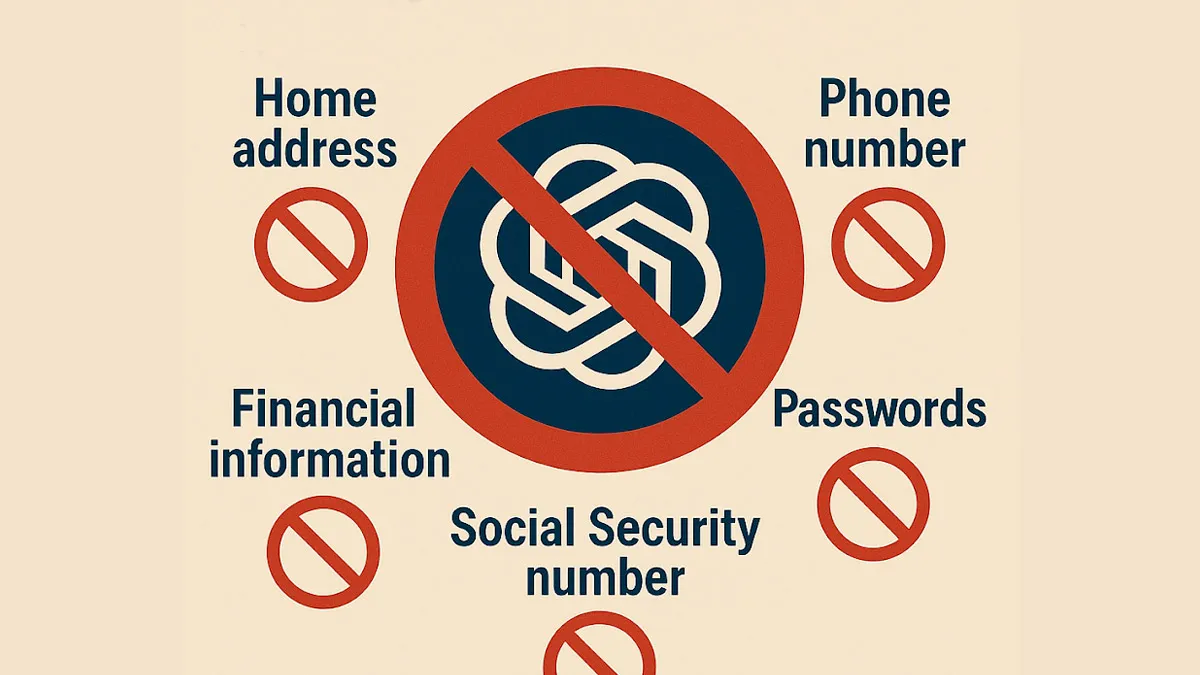
AI tools like ChatGPT have become increasingly helpful in our day-to-day lives—from answering questions to writing code and even interpreting lab results. But just because these tools seem friendly and smart doesn’t mean they’re secure spaces for everything. Experts and AI companies themselves warn users not to share personal, sensitive, or confidential information in chatbot conversations.
OpenAI advises users, "Please don’t share any sensitive information in your conversations." Similarly, Google cautions Gemini users, "Don’t enter confidential information or any data you wouldn’t want a reviewer to see."
Here are five types of personal details you should never share with AI chatbots and why.

Your Social Security number, driver's license details, passport information, date of birth, address, and phone number should remain strictly private. While chatbots attempt to redact such information, the safest approach is never to share it.
Asking AI to interpret medical reports may seem convenient, but it could put your privacy at risk. Unlike healthcare providers, AI chatbots do not fall under laws like HIPAA that protect medical data. That means sharing a medical report with a chatbot could make it vulnerable to breaches or misuse.
If you must use AI to help interpret a report, crop or edit the image to remove personal identifiers before uploading.
Never share your bank account numbers, credit card details, investment account credentials, or any other financial data with a chatbot. Even if you're looking for budgeting help or investment advice, there’s no need to reveal specific account numbers or personal financial access points. These details could be misused if intercepted or accessed through a data breach.
Don't Miss: 3 Online ChatGPT Courses With Certificates

Be cautious when using AI tools for work-related tasks. Even if you’re just drafting an email or summarising a document, including client information, internal documents, or proprietary code can expose your company to serious risks. In 2023, Samsung banned ChatGPT after an employee leaked proprietary source code. Most free AI chatbots do not guarantee corporate data protection.
With AI agents performing more complex tasks, some users may feel tempted to share login credentials. That’s a major red flag. AI chatbots are not password managers. They weren’t designed to store or protect PINs, security questions, or multi-factor authentication keys. If you need to manage logins, use a secure password manager instead.
Don't Miss: Ghibli AI Image Generator Alternatives: Top 8 Free AI Tools Other Than ChatGPT and Grok
For more stories like this, stay tuned to HerZindagi.
Image Courtesy: Freepik
Also watch this video
Herzindagi video
Our aim is to provide accurate, safe and expert verified information through our articles and social media handles. The remedies, advice and tips mentioned here are for general information only. Please consult your expert before trying any kind of health, beauty, life hacks or astrology related tips. For any feedback or complaint, contact us at [email protected].